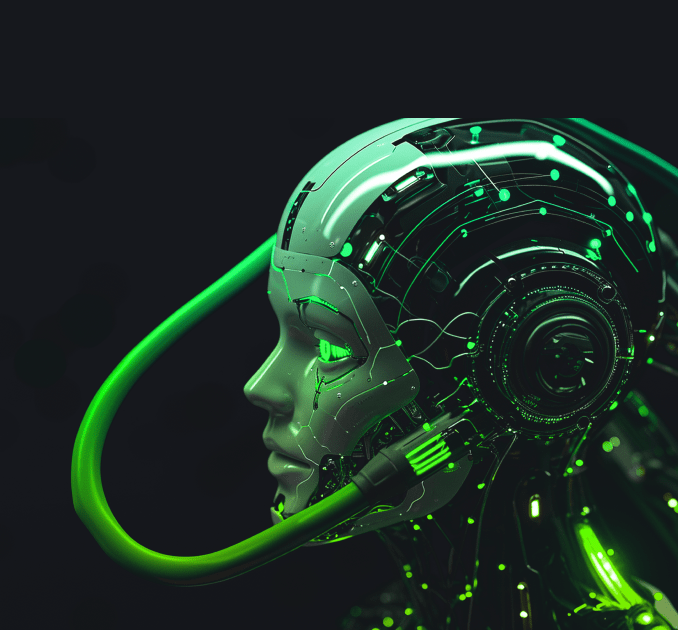The Future of AI Technology: Trends, Applications, and Impacts
Artificial Intelligence (AI) technology is rapidly transforming the world around us, revolutionizing industries, enhancing productivity, and redefining the way we live and work. In this post, we’ll explore the current trends, practical applications, and potential impacts of AI technology, shedding light on its promising future.
Understanding AI Technology
What is AI?
AI refers to the simulation of human intelligence in machines that are designed to think and learn like humans. It encompasses various subfields, including machine learning, deep learning, natural language processing (NLP), and neural networks.
How AI Works
AI systems work by processing large amounts of data, identifying patterns, and making decisions based on that data. Machine learning, a subset of AI, involves training algorithms on data sets to make predictions or perform specific tasks without being explicitly programmed.
Current Trends in AI Technology
1. AI and Machine Learning
Machine learning is at the core of AI innovation. From supervised and unsupervised learning to reinforcement learning, these techniques enable machines to improve their performance over time, making AI systems more accurate and efficient.
2. Natural Language Processing (NLP)
Advancements in NLP have led to the development of chatbots, virtual assistants, and language translation tools that can understand and respond to human language with remarkable accuracy. AI-powered language models like GPT-4 are pushing the boundaries of human-computer interaction.
3. Computer Vision
Computer vision technology allows machines to interpret and analyze visual information from the world. Applications include image and video recognition, autonomous vehicles, and medical imaging, enhancing safety and diagnostic capabilities.
4. AI Ethics and Bias
As AI systems become more pervasive, ethical considerations are paramount. Addressing bias in algorithms and ensuring transparency and fairness are critical to developing trustworthy AI. Efforts are underway to create ethical guidelines and frameworks for AI deployment.
Practical Applications of AI
1. Healthcare
AI is revolutionizing healthcare through diagnostic tools, personalized medicine, and robotic surgery. AI-powered systems can analyze medical images, predict disease outbreaks, and provide real-time patient monitoring, improving outcomes and efficiency.
2. Finance
In the financial sector, AI is used for fraud detection, algorithmic trading, and personalized financial advice. By analyzing vast amounts of data, AI systems can identify patterns and anomalies, enhancing security and investment strategies.
3. Retail
AI is transforming the retail experience with recommendation systems, inventory management, and customer service chatbots. Retailers can offer personalized shopping experiences, optimize supply chains, and respond to customer inquiries instantly.
4. Manufacturing
In manufacturing, AI is applied in predictive maintenance, quality control, and automation of production lines. AI-driven systems can predict equipment failures, ensure product quality, and streamline manufacturing processes, reducing downtime and costs.
5. Transportation
AI is at the forefront of developing autonomous vehicles, optimizing logistics, and improving public transportation systems. AI algorithms can analyze traffic patterns, plan efficient routes, and enhance safety on the roads.
The Impact of AI on Society and Business
Job Market and Workforce
AI’s impact on the job market is multifaceted. While AI automation may displace certain jobs, it also creates new opportunities and demands for reskilling and upskilling. Emphasizing lifelong learning and adaptability is crucial in this evolving landscape.
Economic Growth
AI has the potential to drive significant economic growth by increasing productivity, creating new markets, and fostering innovation. Businesses that leverage AI effectively can gain a competitive edge and unlock new revenue streams.
Ethical and Social Considerations
The widespread adoption of AI raises important ethical and social considerations. Privacy concerns, data security, and the need for regulation are critical issues that must be addressed to ensure AI benefits society as a whole.
The Future of AI Technology
Emerging AI Technologies
The future of AI holds exciting possibilities with emerging technologies such as quantum computing, AI in space exploration, and brain-computer interfaces. These advancements promise to unlock new frontiers and redefine our understanding of AI capabilities.
Predictions and Trends
Experts predict continued advancements in AI, with breakthroughs in areas like natural language understanding, autonomous systems, and AI-driven scientific discoveries. Staying informed about these trends will be essential for businesses and individuals alike.
Preparing for the AI Future
To stay ahead in the AI-driven world, investing in AI education and staying informed about technological advancements is crucial. Businesses should embrace AI strategically, fostering a culture of innovation and adaptability.
Conclusion
AI technology is poised to reshape our world in unprecedented ways. By understanding current trends, practical applications, and the potential impacts of AI, we can navigate this transformative era with confidence and foresight. Embracing AI responsibly and ethically will ensure that its benefits are realized for all of humanity.

